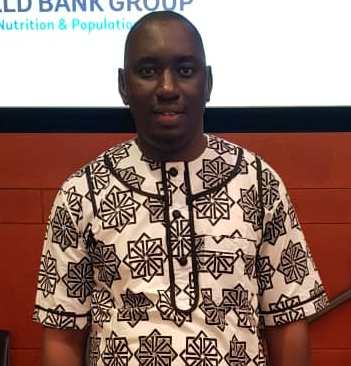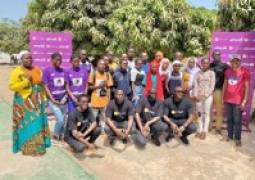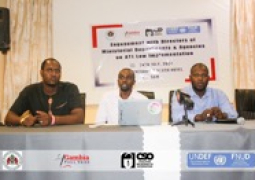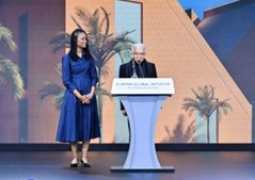
A total of USD10 million initiated by Gambia government and supported by World Bank is being shared amongst 83, 000 households across the country.
All households in Upper River, Central River, Lower River regions, Foni and Sabach Sanjal District in North Bank region is receiving three thousand dalasis (D3,000) during the first round.
Implementing partners on Friday 9 October 2020 commenced the second phase where each household is receiving another three thousand dalasis (D3,000), making the total six thousand dalasis (6,000) within the 30 project districts.
The National Nutrition Agency (NaNA), Department of Social Welfare and Department of Community Development are implementing the ‘Nafa Quick’ cash transfer meant to mitigate the impact of coronavirus pandemic.
He highlighted that covid-19 affected most economic activities thus reducing household income.
“Each household knows its basic needs and should spend the money on it wisely since the money is meant to build household resilience and to mitigate the impact of covid-19,” he remarked.
He said by the testimonies and feedback they got from communities, most of them are spending the money wisely particularly on food items which is very important.
Mr. Dibba said the second round payment that began from Foni Berefet District in West Coast Region is going on well.
However, he added that the payment comes with challenges such as people turning up with vouchers they are claiming were not paid during the first round, saying this takes a lot of verifications as they want to establish why they were not paid to give them a chance to be paid double (D6000) during the second round.
He said another challenge is documentation as they still have undocumented people, noting that every beneficiary or procurator should produce either a passport, National ID Card, voter’s card, or driver’s license to be able to identify the person receiving the money.
He further said that mobilising communities is also another challenge as some do not come out early which delays payment.
He said they understand it is farming season and some people may be busy at their farms, but added that they rely heavily on their Multi-Disciplinary Facilitation Team (MDFT) and local radio stations to inform communities of payment dates.
Despite the challenges Mr. Dibba expressed confidence that they will disburse as scheduled.
Dibba advised people to adhere to health guidelines put in place to stop the spread of covid-19 by wearing face masks, regularly wash their hands, use sanitisers as well as observe social/physical distancing.
He said even though restrictions are relaxed, it is important people take responsibility in preventing themselves, their family and public as covid-19 is very fatal. He finally urged people to report suspected cases to health authorities.





